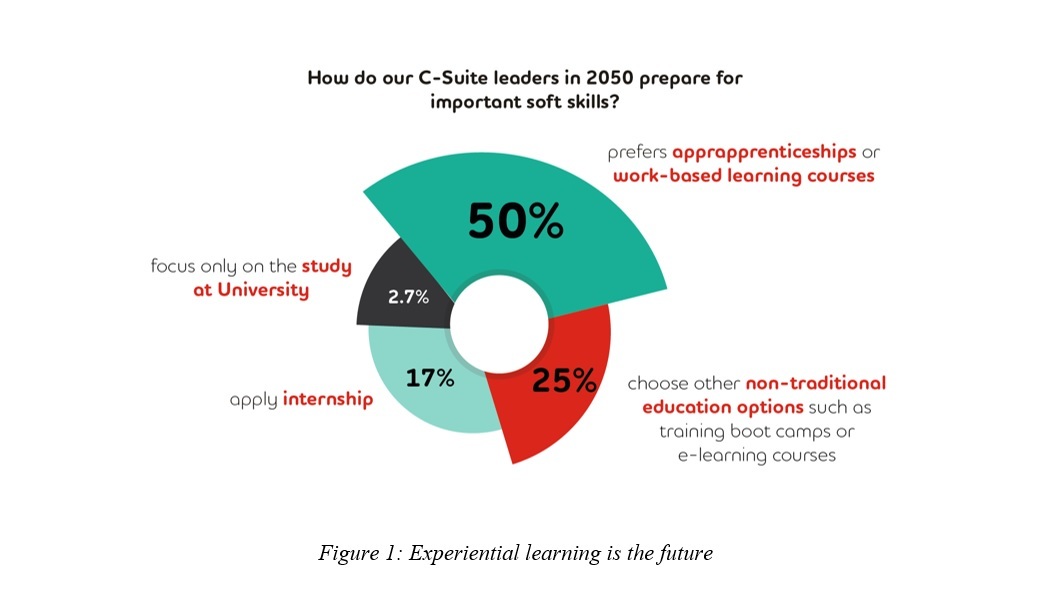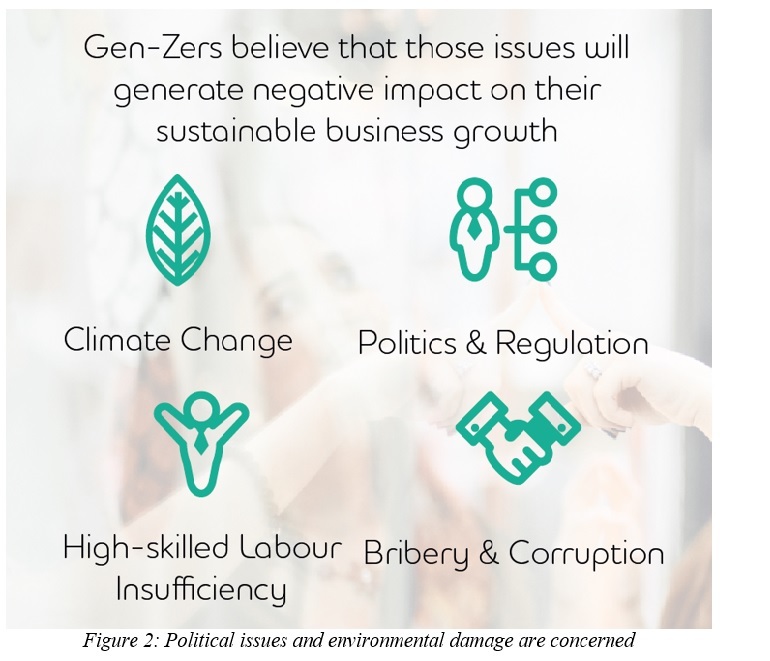 |
|
|
Adecco Vietnam’s first edition of CEOs in 2050 Survey has been released, focusing on Generation Z – the main labour workforce in the future.
The study investigates the top skills and qualities future CEOs need to lead, and how they prepare to take the leap.
In Vietnam, Gen-Zers make up one-seventh of the country’s population. Born between 1995 and 2015, they exist in a world where the line of the physical and digital world is blurry at best.
The survey aims to better understand how Gen Z thinks about their role as CEOs in 2050. The results show that 70% agreed CEOs in 2050 still need to be university qualified, reflecting the importance of formal education, while at the same time noting that 66.7% Gen Z believe soft skills will be more important than technical skills.
Essential CEO skills: people management and leadership
Gen Z believes People Management & Leadership are the two most important skills current CEOs need to work on. Additionally, one third think CEOs must possess Emotional Intelligence (28.8%), followed by Creativity (24,3%) and Self-awareness (24.3%).
Looking forward to 2050, Gen Z-ers characterized future CEOs as strong leaders, excellent communicators, and data-driven decision makers. However, data-driven decision making is the skill that Gen Z feels underprepared.
Additionally, more than one third think their current education should help them build up skillset in Negotiation, Agile project management, and Emotional Intelligence.
"Globalisation and technology advancement demand a new leadership style, which requires data-driven decision-making skills and effective people management. Gen Z is a remarkable generation. They are self-conscious about who they are, what they want and which traits they need to enhance for success. Curiosity and fast learning agility are the key drivers for Gen Z to adapt to the ever-changing environment and will bring innovative solutions to the workforce," said Mr. Andree Mangels, General Director of Adecco Malaysia & Vietnam.
Experiential learning is the future
More than half of our future leaders prefer apprenticeships or work-based learning courses to master the above skills. Other non-traditional education options such as training boot camps or e-learning courses also gain popularity (25%). While acknowledging that a university degree is very important for a C-Suite leader in 2050, only 2.7% think focusing on the study at University is beneficial for their soft skills development (Figure 1).
Gen Z is aware of the impact of technological change, political issues and environmental damage
 |
When asked to rate their concerns about external threats to their organisation’s growth prospects in 2050, “Speed of technological change” is the number-one issue identified by 45% Gen Z-ers.
The Adecco market updates reveal a remarkable rising demand in the technology industry, especially in Artificial Intelligence, Business Intelligence and Fintech.
This trend is forecasted to continue in the future, and 20 million of future manufacturing jobs will be replaced by robots in 2030, cited by Oxford Economics.
43% Gen-Zers believe that worldwide climate change and environmental damage will vary, hence generating negative impact on sustainable business growth.
Besides, there is growing anxiety among these young leaders on the uncertainty of politics and regulation (37.8%), followed by high-skilled labour insufficiency (34.2%) and Bribery and Corruption (31.5%) (Figure 2).
Lastly, 96% of Gen Z foresee themselves becoming the best leaders who create a greater impact on Vietnam than previous generations.
Q. Khuyen
 In Vietnam, Gen-Zers make up one-seventh of the country’s population. Born between 1995 and 2015, they exist in a world where the line of the physical and digital world is blurry at best. They start to emerge and become leaders in the future.
In Vietnam, Gen-Zers make up one-seventh of the country’s population. Born between 1995 and 2015, they exist in a world where the line of the physical and digital world is blurry at best. They start to emerge and become leaders in the future.